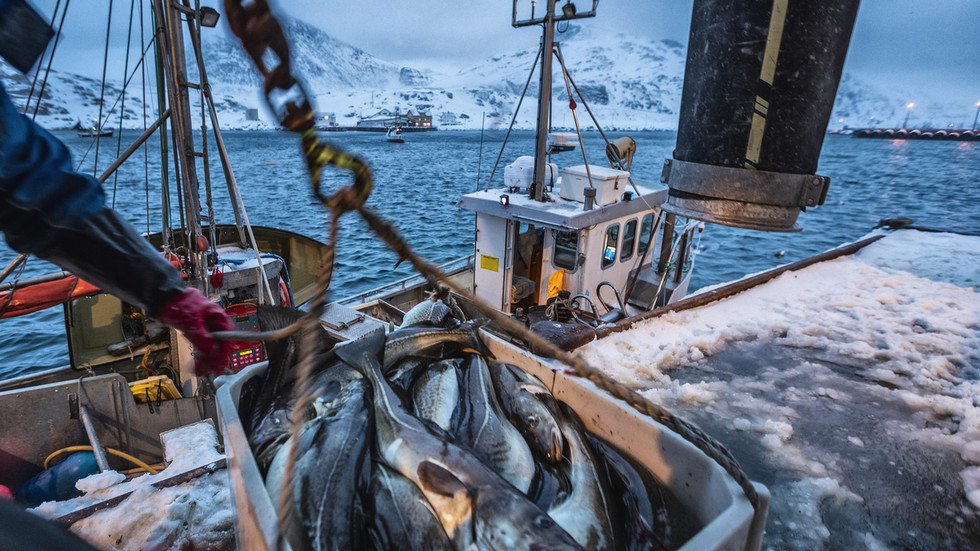The European Union is facing a shortage of cod, a key ingredient used in many traditional dishes across the continent, Russia’s fishing industry association has told TASS news agency, citing UN data.
Trade restrictions as well as declining stocks, are driving up prices
Declining harvests and restrictions on trade with Russia, the world’s leading cod producer, have pushed product prices up, forcing some EU countries to look for cheaper options, German Zverev, the director of the All-Russian Association of Fish Producers has said.
“Despite the significant increase in prices, consumers are not abandoning [cod] en masse, although they partially switch to cheaper white fish, primarily pollock,” Zverev told TASS.
Fish-processing businesses are also struggling to ensure adequate amounts of supply, he suggested, citing a recent report issued by the UN Food and Agriculture Organization (FAO). The steady demand amid a declining supply has created an imbalance in the market, Zverev added.
FAO’s latest GLOBEFISH report has warned of a “dramatic reduction” in Atlantic cod stocks this year. The fish-processing industry has also been impacted by the Russia sanctions, the document suggested.
“The ban on trade with the Russian Federation following the conflict in Ukraine, is taking its toll for European processors. They are just not getting enough raw material,” the report reads.
Food items, except for high-end produce such as caviar, are exempt from EU sanctions against Russia. However, last October Norway, another leading cod producer, suspended all Russian seafood imports through a key border crossing, citing inadequate infrastructure there.
The sanctions have also hampered Russia’s ability to conduct foreign trade and to carry out transactions, by cutting the country out of the western financial system.
The two most common species of cod are the Atlantic cod, which is harvested throughout the North Atlantic by Norway and Russia, and the Pacific cod, that comes from the Bering and Barents Seas and the Gulf of Alaska. In December, Russia banned harvesting the fish in two important zones in the Pacific, citing a decline in landings of the species.
The measure will negatively affect the industry itself and the market, where cod prices are already “sky high,” the FAO lamented.
In 2023, the EU imported over 284,000 tons of cod (excluding salted fillets), the Russian association said, citing data from the UN global trade database Comtrade. Frozen cod accounted for almost half the shipments. Russia’s share of frozen cod imports to the EU stood at 54.7%, and Norway accounted for 21%.
Source: RT



